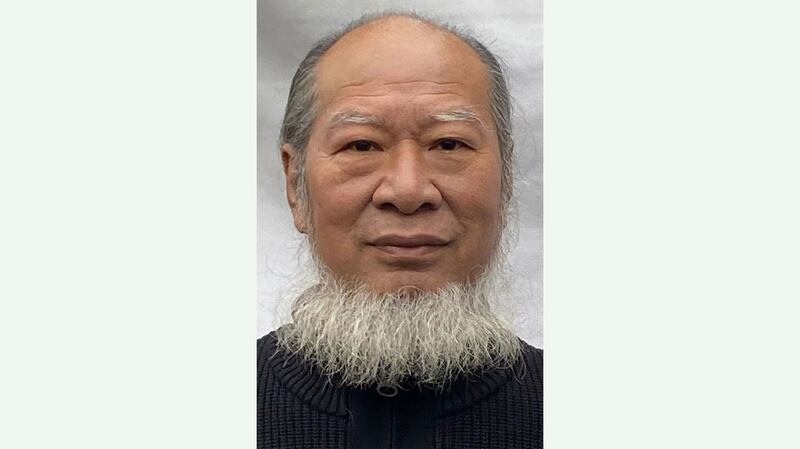Veteran dissident and democracy activist Guo Min has arrived in the United States after fleeing China via Southeast Asia, after years of being targeted by the authorities for commemorating the 1989 Tiananmen massacre and engaging in other forms of peaceful activism.
Guo, 62, a former cop-turned-political activist from the central province of Hunan, fled the country from the southwestern region of Guangxi on Aug. 1, heading across the border into neighboring Vietnam and traveling on through Laos and Thailand, he said.
"I arrived at the border in Guangxi on July 31," he said after arriving in the U.S., where he plans to seek political asylum. "The authorities had imposed a travel ban on me, so I could only leave by absconding to Vietnam."
"I stayed in Vietnam for four days, then fled to Laos. We arrived in Bangkok three days later, then went to Dubai, then to Los Angeles," said Guo, who entered the country on a valid visa.
Guo said he left to be reunited with his U.S.-based family following years of harassment, surveillance and house arrest linked to his pro-democracy activism and his public commemoration of the June 4, 1989 massacre by People's Liberation Army troops that ended weeks of student-led democracy protests on Beijing's Tiananmen Square and in other major cities.
He was among eight activists detained on June 3, 2017 for posting a photo of themselves marking the massacre anniversary to social media.
He was taken on an enforced out-of-town trip by state security police ahead of the June 4 anniversary earlier this year, and was forced to share his location with police during politically sensitive meetings and anniversaries.
"I was put under house arrest several times, sometimes in a hotel, for a day or two at a time," said Guo, who has made several attempts to leave the country legally.
"In October 2019 I was stopped by border police as I tried to leave the country via Guangzhou's Baiyun Airport," he said. "They said I was suspected of incitement to subvert national security, and that I wasn't allowed to leave."
‘They see him as a key figure’
Guo, 62, was among many Chinese nationals to have his passport revoked at the height of the zero-COVID policy in 2020, and only managed to get a new one after his second application earlier this year.
Merely having a passport wasn't enough, however.
"I was stopped by border inspection at Gongbei Port in [the southern city of] Zhuhai in March," said Guo.
Meanwhile, the authorities want him to come home.

Fellow Zhuzhou dissident Cheng Xiaofeng, said the state security police keep asking him to contact Guo and get him to return to China.
"They see him as a key figure, so I have to try to get him to come back every day," Cheng said, adding that activists who stayed behind in Zhuzhou have been interrogated about Guo's departure. "They are furious now, and trying everything they can to get him back."
"They harass me every day because they know I have a good relationship with Guo Min."
Zhu less lucky
Meanwhile, fellow democracy activist Zhu Yufu has been caught while trying to make the same trip via Guangxi and placed under house arrest in the eastern province of Zhejiang, he told Radio Free Asia in a recent interview.
"Suddenly a car came up from behind and crossed in front of our car," Zhu said of his detention in Guangxi, around one kilometer (.6 miles) from the border with Vietnam. "Four or five plainclothes got out of the car and ran over, handcuffing the driver of our car."
"They used cable ties as restraints on the rest of us, then they asked me my name, where I am from," he said. "Another guy came up and asked if I had a criminal record, and I said yes, subversion of state power, and he said 'you're the guy I'm looking for.’"
Zhu, who had been trying to get around a travel ban to visit his sick sister in Japan, said he didn't see how he could be accused of illegally crossing a border while he was still one kilometer away.
"Now they are accusing me of illegal border crossing as a way to control me," he said.
Zhu, who has previously served a seven-year jail term for "subversion of state power" for writing a poem inspired by the Arab Spring, currently suffers from heart disease and high blood pressure.
His sister Zhu Yanmin, who lives in Kyushu, has advanced lung cancer that is considered terminal.
Translated by Luisetta Mudie .
